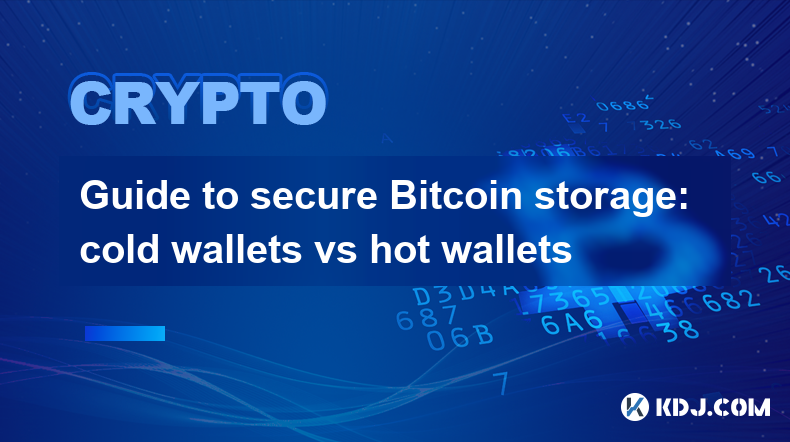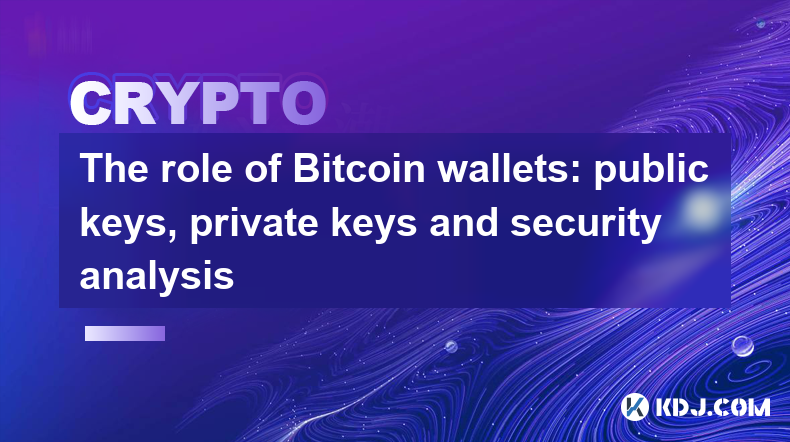-
 Bitcoin
Bitcoin $84,603.0303
1.65% -
 Ethereum
Ethereum $1,628.2638
2.58% -
 Tether USDt
Tether USDt $0.9997
0.00% -
 XRP
XRP $2.1442
1.55% -
 BNB
BNB $586.1953
0.71% -
 Solana
Solana $129.6970
2.29% -
 USDC
USDC $0.9998
-0.02% -
 TRON
TRON $0.2518
-0.50% -
 Dogecoin
Dogecoin $0.1586
-2.40% -
 Cardano
Cardano $0.6343
-0.80% -
 UNUS SED LEO
UNUS SED LEO $9.3746
-0.17% -
 Avalanche
Avalanche $20.1994
3.26% -
 Chainlink
Chainlink $12.7466
0.99% -
 Stellar
Stellar $0.2381
-0.55% -
 Sui
Sui $2.1883
-1.27% -
 Shiba Inu
Shiba Inu $0.0...01199
-0.40% -
 Toncoin
Toncoin $2.8442
-1.19% -
 Hedera
Hedera $0.1656
0.38% -
 Bitcoin Cash
Bitcoin Cash $324.3031
-5.45% -
 Polkadot
Polkadot $3.7104
0.32% -
 Litecoin
Litecoin $76.9539
-0.90% -
 Dai
Dai $0.9999
-0.01% -
 Hyperliquid
Hyperliquid $15.5187
1.91% -
 Bitget Token
Bitget Token $4.2785
-0.04% -
 Pi
Pi $0.7383
-0.07% -
 Ethena USDe
Ethena USDe $0.9989
0.00% -
 Monero
Monero $215.8052
6.03% -
 Uniswap
Uniswap $5.3859
0.83% -
 OKB
OKB $52.8701
-0.49% -
 Pepe
Pepe $0.0...07327
0.90%
The underlying technology of Bitcoin: How does blockchain ensure security?
Blockchain's security relies on cryptography, decentralized consensus, and transparency, making it highly resistant to tampering and attacks.
Apr 11, 2025 at 08:14 am

The underlying technology of Bitcoin, known as blockchain, is a revolutionary system that ensures security through a combination of cryptographic techniques, decentralized consensus, and a transparent ledger. Understanding how blockchain achieves this security is crucial for anyone interested in cryptocurrencies and their potential applications.
Cryptographic Foundations of Blockchain Security
Blockchain's security begins with its use of cryptographic algorithms. Each transaction on the Bitcoin network is secured using public-key cryptography. This system involves two keys: a public key, which is openly shared and used to receive funds, and a private key, which is kept secret and used to sign transactions. When a user initiates a transaction, they use their private key to create a digital signature. This signature can be verified by anyone using the corresponding public key, ensuring that the transaction is authentic and has not been tampered with.
Hash functions play a critical role in maintaining the integrity of the blockchain. Each block in the chain contains a hash of the previous block, creating a chain of blocks that is extremely difficult to alter. If someone attempts to change a transaction in a block, the hash of that block would change, which would then require recalculating the hashes of all subsequent blocks. This process is computationally intensive and practically infeasible, making the blockchain highly resistant to tampering.
Decentralized Consensus and Network Security
The security of the Bitcoin blockchain is further enhanced by its decentralized consensus mechanism, known as Proof of Work (PoW). In this system, miners compete to solve complex mathematical puzzles to validate transactions and add new blocks to the blockchain. The first miner to solve the puzzle gets to add the block and is rewarded with newly minted bitcoins and transaction fees.
PoW ensures that no single entity can control the blockchain, as it would require an enormous amount of computational power to manipulate the network. This decentralized nature of the network makes it highly resistant to attacks, as any attempt to alter the blockchain would need to overcome the collective power of all the miners.
Transparency and Immutability
Another key aspect of blockchain security is its transparency and immutability. Every transaction on the Bitcoin network is recorded on a public ledger that is accessible to anyone. This transparency allows anyone to verify the integrity of the transactions and the state of the blockchain at any time.
Immutability is achieved through the use of cryptographic hashes and the consensus mechanism. Once a block is added to the blockchain, it is extremely difficult to alter. This immutability ensures that once a transaction is recorded, it cannot be changed or deleted, providing a high level of security and trust in the system.
Network Security Measures
The Bitcoin network employs several additional security measures to protect against various types of attacks. Network nodes play a crucial role in maintaining the security of the blockchain. These nodes verify transactions and relay them across the network, ensuring that the blockchain remains consistent and secure.
Double-spending attacks are a significant concern in any digital currency system. Bitcoin's blockchain prevents double-spending by ensuring that each transaction is verified and recorded on the blockchain before it is considered valid. If someone attempts to spend the same bitcoins twice, the network will reject the second transaction, as it conflicts with the first one that has already been recorded.
51% attacks are another potential threat, where a group of miners control more than half of the network's mining power. In such a scenario, they could potentially alter the blockchain. However, the decentralized nature of the Bitcoin network and the high cost of acquiring such a large amount of mining power make this type of attack highly unlikely.
Practical Security Measures for Users
While the blockchain itself is secure, users must also take practical steps to protect their bitcoins. Securing private keys is paramount, as anyone with access to a private key can control the associated bitcoins. Users should store their private keys in secure hardware wallets or encrypted software wallets and never share them with anyone.
Using strong passwords and enabling two-factor authentication (2FA) on exchanges and wallets can add an extra layer of security. Users should also be cautious of phishing attempts and only use reputable and secure platforms for their cryptocurrency transactions.
Regularly updating software and staying informed about the latest security threats and best practices is essential for maintaining the security of one's bitcoins. By following these practical security measures, users can protect their assets and contribute to the overall security of the Bitcoin network.
Frequently Asked Questions
Q: Can blockchain technology be used for purposes other than cryptocurrencies?
A: Yes, blockchain technology has a wide range of applications beyond cryptocurrencies. It can be used for supply chain management, voting systems, identity verification, and more. The key features of transparency, immutability, and decentralized consensus make it suitable for various industries.
Q: How does the size of the blockchain affect its security?
A: The size of the blockchain itself does not directly affect its security. However, a larger blockchain can make it more difficult to perform a 51% attack, as it would require more computational power to control the majority of the network. Additionally, a larger blockchain with more participants can enhance the decentralized nature of the network, further increasing its security.
Q: What happens if a vulnerability is discovered in the Bitcoin blockchain?
A: If a vulnerability is discovered in the Bitcoin blockchain, the community and developers would work together to address it. This could involve implementing a software update or a hard fork to fix the issue. The decentralized nature of the network and the transparency of the blockchain make it possible to quickly identify and respond to vulnerabilities, ensuring the continued security of the system.
Q: How does the energy consumption of Bitcoin mining relate to its security?
A: The energy consumption of Bitcoin mining is directly related to its security through the Proof of Work consensus mechanism. The high energy cost of mining makes it economically unfeasible for an attacker to control the majority of the network's mining power, thereby enhancing the security of the blockchain. However, this also raises concerns about the environmental impact of Bitcoin mining.
Disclaimer:info@kdj.com
The information provided is not trading advice. kdj.com does not assume any responsibility for any investments made based on the information provided in this article. Cryptocurrencies are highly volatile and it is highly recommended that you invest with caution after thorough research!
If you believe that the content used on this website infringes your copyright, please contact us immediately (info@kdj.com) and we will delete it promptly.
- Vaulta Emerges from Its Past with a Renewed Focus on Practical Finance and Compliance-First Blockchain Infrastructure
- 2025-04-15 04:50:13
- Render Network (RNDR), SEI and Bittensor (TAO) lead crypto AI sector despite 5% daily drop
- 2025-04-15 04:50:13
- HYPE is showing early signs of a bullish reversal, with a potential inverse head and shoulders pattern forming
- 2025-04-15 04:45:13
- BlockDAG (BDAG) Captures Developer Attention with Complete Smart Contract Features and Growing $214M Presale
- 2025-04-15 04:45:13
- title: RWA-Focused Crypto Project MANTRA (OM) Loses $5.431B of Market Cap in Overnight Collapse of Its Native Token
- 2025-04-15 04:40:15
- Trump's Tariffs Just Supercharged Bitcoin – Here's What's Coming
- 2025-04-15 04:40:15
Related knowledge

What is Bitcoin halving? Analysis of the impact on prices
Apr 09,2025 at 01:14pm
Bitcoin halving is a pivotal event in the cryptocurrency world that occurs approximately every four years, or every 210,000 blocks. The event is designed to reduce the rate at which new bitcoins are generated, thereby controlling inflation and increasing scarcity over time. During a halving, the reward that miners receive for successfully adding a block...

What to do if Bitcoin is stolen? Security protection and recovery possibilities
Apr 09,2025 at 03:42pm
If your Bitcoin is stolen, it can be a distressing experience, but there are steps you can take to protect your remaining assets and attempt to recover your lost funds. This article will guide you through the process of securing your Bitcoin and exploring recovery possibilities. Immediate Actions After Bitcoin TheftThe moment you realize your Bitcoin ha...

How to avoid Bitcoin investment scams? Common scams revealed
Apr 10,2025 at 05:14pm
Introduction to Bitcoin Investment ScamsBitcoin and other cryptocurrencies have become increasingly popular investment options, attracting both seasoned investors and newcomers alike. However, with the rise in popularity, there has also been a surge in Bitcoin investment scams. These scams can range from Ponzi schemes to fake exchanges and fraudulent in...

Guide to secure Bitcoin storage: cold wallets vs hot wallets
Apr 11,2025 at 08:42am
Guide to Secure Bitcoin Storage: Cold Wallets vs Hot Wallets When it comes to storing Bitcoin, security is paramount. The choice between cold wallets and hot wallets can significantly impact the safety of your digital assets. This guide delves into the differences between these two types of wallets, their respective advantages and disadvantages, and how...

What is Bitcoin fork? Differences between BTC, BCH, and BSV
Apr 10,2025 at 02:21am
A Bitcoin fork refers to a change in the underlying protocol of the Bitcoin blockchain, which results in a divergence into two separate versions of the blockchain. This can happen as a result of a disagreement within the community about the direction of the cryptocurrency, or to introduce new features or improvements. There are two main types of forks: ...

The role of Bitcoin wallets: public keys, private keys and security analysis
Apr 09,2025 at 03:00am
Bitcoin wallets play a crucial role in the world of cryptocurrency, serving as the gateway to securely store, send, and receive Bitcoin. Understanding the intricacies of Bitcoin wallets, particularly the concepts of public keys, private keys, and security analysis, is essential for anyone looking to navigate the cryptocurrency landscape safely and effec...

What is Bitcoin halving? Analysis of the impact on prices
Apr 09,2025 at 01:14pm
Bitcoin halving is a pivotal event in the cryptocurrency world that occurs approximately every four years, or every 210,000 blocks. The event is designed to reduce the rate at which new bitcoins are generated, thereby controlling inflation and increasing scarcity over time. During a halving, the reward that miners receive for successfully adding a block...

What to do if Bitcoin is stolen? Security protection and recovery possibilities
Apr 09,2025 at 03:42pm
If your Bitcoin is stolen, it can be a distressing experience, but there are steps you can take to protect your remaining assets and attempt to recover your lost funds. This article will guide you through the process of securing your Bitcoin and exploring recovery possibilities. Immediate Actions After Bitcoin TheftThe moment you realize your Bitcoin ha...

How to avoid Bitcoin investment scams? Common scams revealed
Apr 10,2025 at 05:14pm
Introduction to Bitcoin Investment ScamsBitcoin and other cryptocurrencies have become increasingly popular investment options, attracting both seasoned investors and newcomers alike. However, with the rise in popularity, there has also been a surge in Bitcoin investment scams. These scams can range from Ponzi schemes to fake exchanges and fraudulent in...

Guide to secure Bitcoin storage: cold wallets vs hot wallets
Apr 11,2025 at 08:42am
Guide to Secure Bitcoin Storage: Cold Wallets vs Hot Wallets When it comes to storing Bitcoin, security is paramount. The choice between cold wallets and hot wallets can significantly impact the safety of your digital assets. This guide delves into the differences between these two types of wallets, their respective advantages and disadvantages, and how...

What is Bitcoin fork? Differences between BTC, BCH, and BSV
Apr 10,2025 at 02:21am
A Bitcoin fork refers to a change in the underlying protocol of the Bitcoin blockchain, which results in a divergence into two separate versions of the blockchain. This can happen as a result of a disagreement within the community about the direction of the cryptocurrency, or to introduce new features or improvements. There are two main types of forks: ...

The role of Bitcoin wallets: public keys, private keys and security analysis
Apr 09,2025 at 03:00am
Bitcoin wallets play a crucial role in the world of cryptocurrency, serving as the gateway to securely store, send, and receive Bitcoin. Understanding the intricacies of Bitcoin wallets, particularly the concepts of public keys, private keys, and security analysis, is essential for anyone looking to navigate the cryptocurrency landscape safely and effec...
See all articles























































































